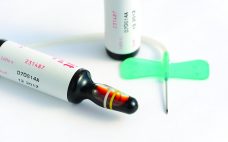At the Hynes Convention Center in Boston, MA, during Knect365’s “Biotech Week Boston” in late September of 2017, one track of the BioProcess International Conference focused on drug products, fill–finish, and formulations. Presenters represented a number of major biopharmaceutical companies — AbbVie, Amgen, Biogen, Eli Lilly, Genentech (Roche), GlaxoSmithKline, Johnson & Johnson, Lonza, Pfizer, and Sanofi — as well as suppliers Bosch, Merck (MilliporeSigma), ReForm, and Single-Use Support. They focused on predictive modeling, quality by design (QbD) and process analytics,…
January-February 2018 Featured Report
A Vaccine Case Study: Qualifying Redundant Disconnection Technologies As Container-Closure Systems for Long-Term Storage and Shipping
The expanding complexity of biopharmaceutical manufacturing puts increasing pressure on single-use systems to meet the demands of the modern industry’s global footprint. Individual sites within a given organization often are specialized to a fixed number of “modular” process steps (1). Such product segregation increases plant efficiency and output while making the best of staff competencies. But it also can create an additional need for transportation of intermediate or bulk drug substance (BDS) over long distances. Freezing generally is used to…
Beyond Compliance: Serialization Has More to Offer
As the global pharmaceutical industry implements serialization (track and trace from manufacturing to dispensing) to meet governmental regulatory requirements, other opportunities arise for drug companies. The main driver here is to improve the integrity of the overall drug supply chain, but other meaningful business benefits can come from serialization. Generally accomplished through automated, electronic means, it involves such practices as recording, authenticating, maintaining, and sharing accurate records of products. Outside-the-Box Benefits In addition to tightening up the supply chain and…



